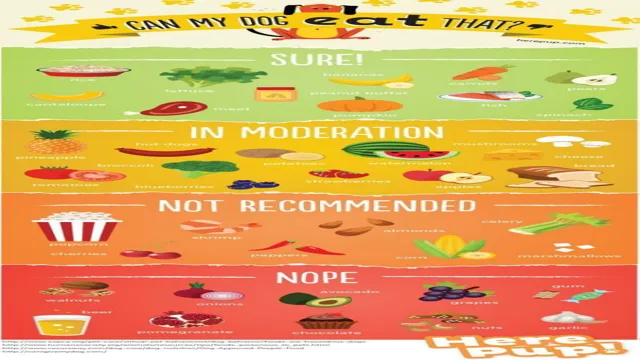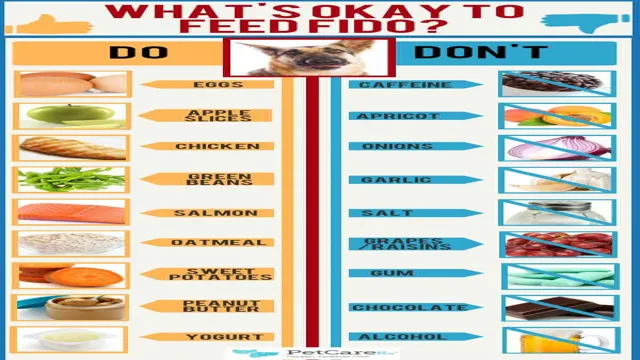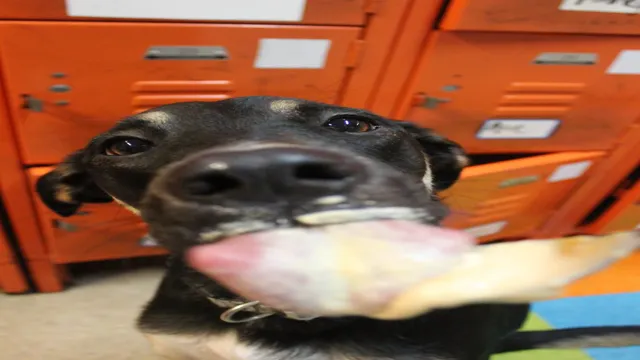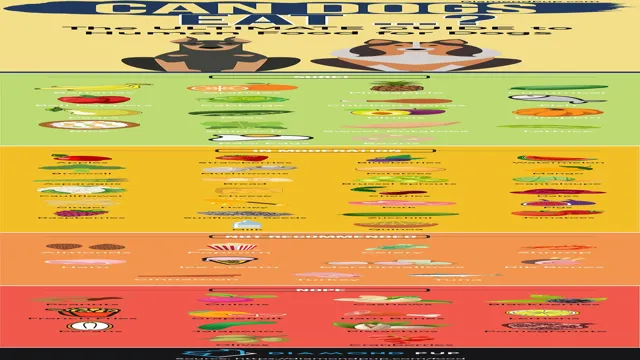When Should Puppies Start Eating Solid Food? A Guide for Dog Owners

When it comes to your pup’s nutrition, one of the most important questions to ask is when can dogs eat solid food? As a pet parent, you want to provide the best nutrition for your canine companion, and knowing when to transition from puppy food to adult dog food is essential. In this blog, we’ll explore the ideal age at which puppies can begin eating solid food, the process of transitioning to new food, and how to ensure your pup is getting the right nutrition. Read on to learn more!
Understanding a Dog’s Digestive System
The canine digestive system is an incredibly complex and important part of a dog’s overall health. Understanding how it works can help you ensure your pup is getting the right nutrition and help you identify any potential problems. A dog’s digestive system starts in the mouth, just like humans. Dog’s teeth are designed to tear and shred food, and their tongues help them swallow. Saliva helps to break down the food, while enzymes get the digestion process started.
From there, the food moves to the esophagus, where it is moved along by a wave-like action called peristalsis. From there, it moves to the stomach, where the digestive process continues. The stomach is acidic and helps break down proteins in the food. Once the food is broken down in the stomach, it moves into the small intestine, where most of the digestion and absorption of nutrients takes place. Bile, produced by the liver, helps break down fats, while enzymes from the pancreas help break down carbohydrates and proteins.
Finally, the food moves to the large intestine, where water is removed from the food and waste products are formed. This waste is then passed out of the body through the rectum. So, when can dogs eat solid food? Generally, puppies can start eating solid foods when they are around three to four weeks old. Until then, they should be fed a special puppy formula. As they get older, they’ll be able to transition to an adult diet.
However, always check with your veterinarian to make sure you’re providing your pup with the right nutrition.
Nutrition Requirements for Dogs
As your furry friend grows, they will eventually need more than just milk to sustain them. Knowing when the right time is to transition your pup to solid foods can be tricky, but understanding their nutritional requirements is the first step in providing them with the healthy diet they need. While the age of your pup should be a major factor in their diet, the size, breed, and overall health of your pup should all be taken into account when deciding when to introduce solid foods. Generally, puppies should begin to transition to solid food between the ages of 3-4 weeks, although this can vary depending on the size and breed of your pup. When introducing solid food, it’s important to ensure that it is rich in nutrients and free of any additives or preservatives.
Doing this will ensure your pup has the nutritional foundation they need to lead a happy and healthy life.

The Benefits of Solid Food for Dogs
When it comes to providing the best nutrition for your pup, it’s important to understand the benefits of introducing solid food to their diet. Solid food can provide essential nutrients and vitamins that can help support a healthy lifestyle for your pooch. It can also encourage chewing and can help to keep their teeth clean. But knowing when to introduce solid food to your dog’s diet can be tricky. For puppies, it is recommended that they start eating solid food at the age of 3-4 weeks.
As they grow, they may be able to tolerate more solid food and may even be ready for full meals by the time they are 6 months old. Introducing solid food gradually, and in combination with puppy formula or wet food, will help to ensure your pup’s transition is smooth and healthy.
When to Transition a Puppy to Solid Food
The transition from puppy food to solid food is an important milestone for your pup. Knowing when to transition your pup to solid food can help ensure that they are getting proper nutrition and growing in a healthy manner. It’s important to remember that puppies have different nutritional needs than adult dogs, so it’s important to understand when to transition your pup to solid food. Generally speaking, puppies should begin eating solid food when they are around 3-4 weeks old. At this age, they have developed the ability to eat and digest solid foods, and they require more nutrient-dense foods to sustain their growth.
At first, it is best to offer a soft, moistened puppy food to make it easier for them to digest. You can also offer small amounts of cooked, pureed vegetables, as well as eggs, for added nutrition. Gradually increase the amount of solid food you offer over the next few weeks. It’s also important to ensure that your pup has plenty of access to water during this transition period. Dehydration can be a serious issue for puppies, so make sure to keep their bowl full and clean at all times.
To make the transition to solid food easier, you should also offer your pup several smaller meals throughout the day. Puppies have small stomachs and can’t handle large meals like adult dogs can, so smaller meals can help prevent digestive issues. Once your pup has made the transition to solid food, it’s important to continue providing them with a balanced diet. This means offering them a combination of proteins, carbohydrates, fiber, vitamins, and minerals in their meals. Overall, knowing when to transition your pup to solid food is important for their health and growth.
With the proper nutrition and care, your pup will grow into a happy, healthy adult dog.
Signs That a Puppy Is Ready for Solid Food
As puppies grow and develop, they will eventually be ready to try out solid foods. Figuring out when a puppy is ready to eat solid foods can be difficult, but there are a few signs to look out for. When a puppy reaches the age of 4-6 weeks, they should be ready to start eating solid foods. They should be able to walk, stand, and hold their head up on their own. Look for signs of interest in the food such as licking, nibbling, and chewing.
Also, when a puppy can no longer easily fit two fingers between the collar and neck, it’s a sign that solid food is ready to be introduced into their diet.
Tips for Transitioning a Puppy to Solid Food
Are you bringing home a new pup and wondering when they can start eating solid food? Transitioning your puppy to solid food can be a tricky process, but it doesn’t have to be! Here are some tips on when you can start introducing your puppy to solid food to make the transition a success. Start by introducing solid foods when your pup is around 3-4 weeks old. At this age, they are ready to start transitioning from their mother’s milk to solid food. Start off by giving them a small amount of puppy kibble softened with a bit of warm water. As your pup grows, you can gradually increase the amount of solid food and decrease the amount of water.
You should also ensure that the food you are giving your pup is appropriate for their age, breed, and size. Finally, make sure to monitor your puppy’s health and adjust their diet accordingly. With these tips in mind, you can start the transition to solid food with confidence!

Feeding a Puppy Solid Food
As a new pet parent, you may be wondering when is the right time for your puppy to start eating solid food. The answer is simple: typically puppies can begin eating solid foods at around 8 weeks old. However, it’s important to discuss your puppy’s nutrition needs with your veterinarian, as different breeds and sizes may have different nutritional requirements. Once your pup is ready to start eating solid foods, make sure to offer a balanced diet of high-quality dog food formulated specifically for puppies. Introducing your puppy to solid food is an exciting milestone in their development and one that will help them grow into a healthy, happy adult dog.
Solid Food Options for Adult Dogs
Feeding your adult dog can be a tricky business. During their first year, puppies need a specialized diet that is tailored to their unique nutritional needs. But once they reach adulthood, it’s important to know when they can start eating solid food. This article will provide you with information on when you can introduce solid food to your adult dog and some solid food options to consider. As a rule of thumb, most dogs should be switched to an adult diet around one year of age.
However, some larger breed dogs may need to wait until they are 18 months old before transitioning to solid food. The best way to ensure that your pup is ready for solid food is to talk to your veterinarian. They can evaluate your pup’s growth rate and nutritional needs and let you know when it’s time to switch. When it’s time to introduce solid food to your adult dog, you’ll have a variety of options to choose from. The most common type of solid food for adult dogs is dry kibble.
Kibble is easy to digest and provides your pup with a balanced diet of proteins, carbohydrates, and fats. You can also supplement your pup’s kibble with canned wet food, as well as home-cooked meals. It’s important to remember that puppies and adult dogs have different nutritional needs, so be sure to choose the right food for your pup. It’s also important to transition your pup to solid food gradually, by mixing a small amount of the new food with their old food. This will help them adjust to the new diet more easily.
When it’s time to start feeding your adult dog solid food, it’s important to remember that not all food is created equal. Be sure to read the labels and choose a food that is designed for adult dogs and meets your pup’s nutritional requirements. With a little bit of research and some patience, you
Nutrition Considerations for Adult Dogs
It’s important to understand the nutritional needs of adult dogs and what to feed them. When it comes to solid food, adult dogs should start to transition from puppy food to adult food around 12-14 months old. This transition should take place gradually over a period of one to two weeks, giving your pup time to adjust to the new food. Adult food should be high in protein and low in fat, and should provide all the essential vitamins and minerals that your dog needs. In general, adult dogs should be fed twice a day, with a set amount of food per meal.
Make sure to provide plenty of fresh water to keep your pup hydrated at all times. With the right nutrition and care, your adult dog can stay healthy and happy for many years to come.
Types of Solid Food for Adult Dogs
As adult dogs continue to grow, they require more nutrition than ever to stay healthy. One of the most important aspects of their diet is the type of solid food they consume. There are several types of solid food that can be fed to adult dogs, and knowing when to introduce them can help ensure your pup is getting the proper nutrition. Puppies should be transitioned to adult food when they reach the age of 12 months, but this may vary depending on their breed or size. Dry kibble is a popular choice for adult dogs, as it contains the necessary nutrients and is easy to store.
Wet canned food can also be a great option, as it often contains more meat and is often more palatable for dogs. Additionally, some owners may opt for homemade dog food, which can be tailored to meet the specific needs of their pet. Whatever type of solid food you choose for your adult pup, make sure it is balanced and complete to ensure they’re getting all the nutrition they need.
Conclusion
When it comes to solid food, it’s essential to remember that dogs can only eat it when their stomachs are ready for it; usually when they’re about four to six weeks old. So, if you want to give your pup the best start in life, just wait until they’re ready to chow down on those solids!”
FAQs
When can puppies begin eating solid food?
Puppies can usually begin eating solid food between 3 to 4 weeks of age.
At what age is it safe for a dog to start eating solid food?
Most puppies are ready to start eating solid food around 6 to 8 weeks of age.
How do I know when my dog is ready to eat solid food?
Signs that your pup is ready for solid food include when they can stand with their belly off the ground and when they start to lose their baby teeth.
What type of food should my dog eat when transitioning to solid food?
When transitioning to solid food, it is best to start with a high-quality puppy food that is formulated specifically for puppies.
How many times a day should I feed my dog solid food?
Generally, puppies should be fed three to four times a day until they are around 6 months old, when they can transition to two meals a day.
How can I tell if my dog is eating enough solid food?
You can tell if your dog is eating enough solid food if they are gaining weight and if their coat is shiny and healthy.




